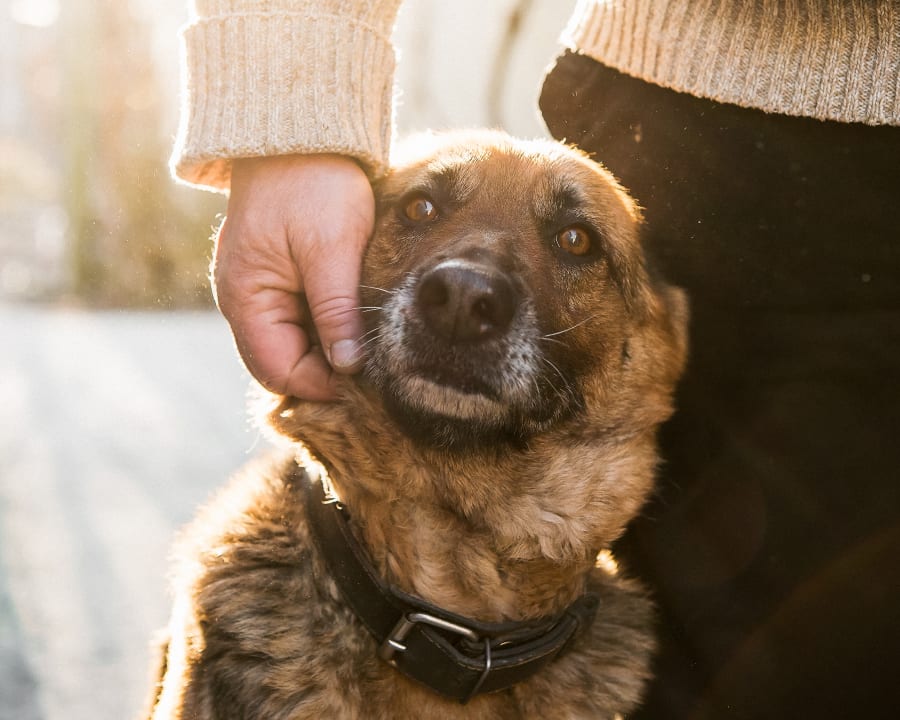Quality Care for Senior Dogs & Cats
Routine preventive veterinary care and early diagnosis are crucial for senior pets to help them maintain a good quality of life as they age.
Diligent care can help extend your pet's life and good health as they get older, so it's important that they attend regularly scheduled wellness exams, even if they aren't showing any signs of health issues.
Your veterinarian is here to help geriatric pets in Wiggins achieve their best health and happiness by taking a proactive approach to the early diagnosis and treatment of emerging health issues, and comprehensive treatment planning for advanced health concerns.

Typical Health Problems
Cats and dogs today are living longer lives than ever before.
While this is certainly something to be celebrated, it also means that pet owners and vets now deal with more conditions affecting geriatric animals than they did in the past.
Senior pets are typically prone to the following conditions:
- Joint or bone disorders
Geriatric Dogs
As dogs become older, they can be affected by many disorders or diseases of the bones or joints that can result in pain and discomfort. Some of the most common joint and bone disorders in geriatric pets that our veterinarians see include arthritis, hip dysplasia, osteochondrosis, reduction in spinal flexibility, and growth plate disorders.
Diagnosing and treating these issues early is vital for keeping your dog comfortable as they continue to age. Treatment for joint and bone issues in senior dogs ranges from simply reducing levels of exercise to the use of analgesics and anti-inflammatory drugs to surgery to remove diseased tissue, stabilize joints, or reduce pain.
Geriatric Cats
Osteoarthritis is a painful condition that can affect your senior cat's joints.
Symptoms of osteoarthritis in cats may be fairly subtle. Cats can experience a decrease in range of motion, but the most common symptoms of osteoarthritis in geriatric cats include weight loss, loss of appetite, depression, change in general attitude, poor grooming habits, urination or defecation outside the litter pan, and inability to jump on and off objects.
- Cancer
For the prevention of serious cancers, it's important for your senior pet to visit the vet for routine wellness exams as they age.
Bringing your geriatric pet in for routine checkups even when they seem healthy allows your veterinarian to examine them for early signs of cancer and other diseases, which respond better to treatment when caught in their earliest stages.
- Heart Disease
Like humans, geriatric pets can experience serious complications due to heart disease.
Older dogs are commonly affected by congestive heart failure, which occurs when the heart isn't pumping blood efficiently. When this happens, it causes fluid to back up in the heart, lungs, and chest cavity.
While heart disease is seen less in cats than in dogs, they may experience a condition called Feline Hypertrophic Cardiomyopathy (HCM). This condition causes the walls of a cat’s heart to thicken, decreasing the heart’s ability to function efficiently.
- Blindness and hearing loss
Senior pets can experience degeneration in eye and ear function as a result of aging, although this is more common in dogs than in cats.
When these conditions are age-related, they may come on slowly, allowing geriatric pets to adjust their behavior and making it difficult for pet owners to notice.
- Liver disease
In senior cats, liver disease is common and may be the result of high blood pressure or hyperthyroidism. Symptoms of liver disease in cats include loss of appetite, jaundice, drooling, vomiting, diarrhea, and increased thirst.
Dogs can experience a number of serious symptoms as a result of liver disease, including seizures, vomiting, diarrhea, fever, jaundice, abdominal fluid buildup, and weight loss.
If your geriatric dog or cat begins to show any symptoms of liver disease, immediate veterinary care is essential.
- Diabetes
It is possible for dogs and cats to develop diabetes at any age. Dogs are often diagnosed at approximately as they approach 10 years of age, and most cats when they are over six years of age.
Symptoms of diabetes in dogs and cats include excessive thirst, increased appetite accompanied by weight loss, cloudy eyes, and chronic or recurring infections.
Obesity is a common risk factor for both dogs and cats.
- Kidney disease
Kidney function often decreases as pets begin to age. Sometimes, kidney disease can be caused by medications used to treat other common conditions seen in geriatric pets.
While chronic kidney disease cannot be cured, it can be managed with a combination of diet and medications to give your pet a good quality of life.
- Urinary tract disease
Our Wiggins vets often see cats and dogs who are experiencing urinary tract issues. Elderly pets can be prone to accidents as the muscles controlling the bladder weaken, but note that incontinence could be a sign of a bigger health issue, such as a urinary tract infection or dementia.
If your senior pet experiences incontinence issues, you should always take them to the vet for a thorough examination.
Veterinary Care for Seniors
Our veterinary team will thoroughly examine your senior pet. They will also ask for details about their home life and perform any medical tests that may be required to receive additional insight into his or her general physical health and condition.
Your vet will recommend a treatment plan based on the results that might include medications, activities, and dietary changes that are designed to help improve your senior pet's health and well-being
Routine Wellness Exams
Routine preventive care is an essential part of helping your pet lead a happy, healthy, and comfortable life going into old age. Ensuring your pet attends their wellness checks also gives our veterinarians the opportunity to detect any diseases or potential health issues early.
Diagnosing and addressing conditions early will help preserve your pet's physical health and catch emerging health issues before they develop into long-term problems.
With regular physical examinations, your senior pet will have a better chance at quality long-term health.
